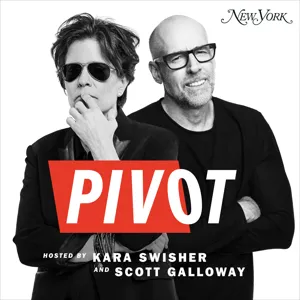Podcast Summary
Collaboration and the right tools keep teams connected and productive: Collaboration tools like Atlassian's Jira, Confluence, and Loom help teams work effectively together, even when population growth is projected to decline. Staying hydrated and taking care of ourselves also contributes to productivity.
Collaboration and the right tools can help teams, regardless of size, achieve great things together. Atlassian software, such as Jira, Confluence, and Loom, are used by millions of teams worldwide, including 75% of the Fortune 500, to facilitate collaboration and keep teams connected. This is especially important in today's world where population growth is projected to decline, leading to fewer ideas and less innovation. To keep moving forward, it's essential to make the most of the resources we have, including our teams and the tools that help us work together effectively. Additionally, taking care of ourselves, such as staying hydrated with Smartwater alkaline, is crucial for performing at our best. And, on a larger scale, encouraging population growth can help ensure a future with an abundance of ideas and innovation.
Population density doesn't cause crises: Population decline, not density, poses challenges like fewer ideas, less labor, and a loss of human experiences
The common belief of overpopulation leading to crises such as food insecurity, climate change, and income inequality is a misconception. Instead, population density has no correlation with these issues. The real problems stem from factors like poverty, natural disasters, wars, and poor agricultural infrastructure. Climate change is primarily a result of energy and lifestyle choices. To tackle these crises, we need more people, not fewer, as they generate ideas that make the world more productive. However, we're facing a potential shortage of ideas due to population decline in many countries. The global population is projected to peak and then decline, which could lead to fewer brains and less labor, resulting in less innovation and a loss of human experiences. The aging population and shrinking workforce present a significant challenge for the future.
The Economic Challenges of an Aging Population: An aging population leads to less productivity, increased public resource consumption, and significant economic burdens. Solutions such as extending the working age and means testing Social Security are minimal, and the real answer lies in immigration to fuel business growth and economic expansion.
The aging population and its associated economic challenges present a significant issue for our society. Imagine a world where there are six times as many potential grandparents and half as many grandkids. This demographic shift would lead to a less productive population, as economic productivity peaks in our forties, and seniors consume a substantial amount of public resources. Despite seniors controlling a large amount of wealth, many are dependent on Social Security and Medicare. The bottom 50% of boomer households own just 2% of boomer wealth, and the median household income for those 65 and older is the lowest of any age group. As a result, we spend nearly half of our total tax dollars on people 65 and up, and this percentage is projected to increase to 50% by 2029. Additionally, 19% of our GDP is allocated to healthcare, a product that primarily benefits the elderly. There are proposed solutions, such as extending the working age and means testing Social Security payments. However, these band-aid measures would only result in minimal savings. The real solution lies in immigration, as immigrants are the lifeblood of business formation in America and have been responsible for half of our unicorns. In summary, we cannot shrink our way out of this problem, and we need to find ways to grow our economy with the aging population and through immigration.
Encouraging Immigration and Balancing Gender Roles for Economic Growth: To boost economic growth, the US needs both immigration and more births. However, women prioritize financial stability in partners, leading to a gender imbalance. Solutions include vocational training, expanding college seats, and national service to make men more attractive partners.
Attracting and welcoming immigrants is crucial for economic growth, and it's a source of pride for the United States. However, population growth also requires encouraging Americans to have more children. The issue is that people are delaying marriage and starting families, and there's a perceived imbalance between the number of eligible women and men. Women value financial stability in a partner more than men do, and over the next five years, we will graduate twice as many women from college as men. This gender imbalance can lead to men becoming less attractive in the dating scene and drifting away from it. Solutions include vocational training programs, expanding freshman seats at colleges, and national service to help level up men and make them more attractive partners. Ultimately, encouraging Gen Z to have kids requires creating stable environments with supportive families, quality healthcare, and good schools.
Investing in the next generation: Creating supportive environments, addressing financial burdens, and engaging with young people are crucial for building strong relationships and ensuring a prosperous future.
Investing in the next generation and creating supportive environments for young people is crucial for building strong relationships and ensuring a prosperous future. This includes creating more third places for social interaction, addressing the financial burdens of raising children, and reversing the wealth transfer from the young to the old. Older generations have a responsibility to engage with young people and provide role models, as the absence of such figures can lead to negative outcomes. The economic challenges faced by young people, such as high housing costs and expensive education, require significant investment and policy changes. By prioritizing the needs and opportunities of younger generations, we can create a future where families thrive and society as a whole prospers.






